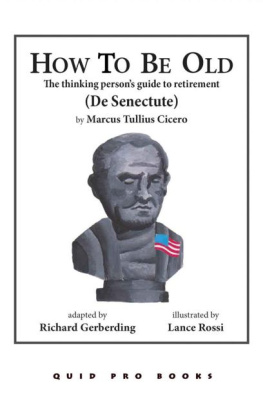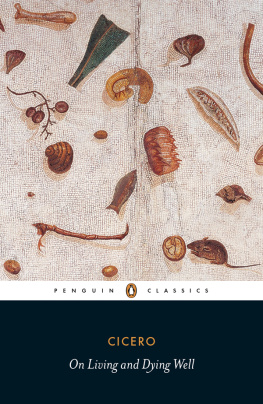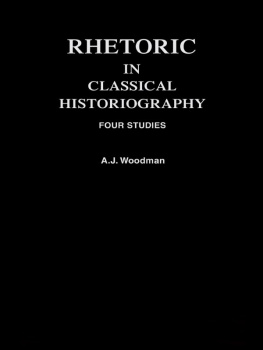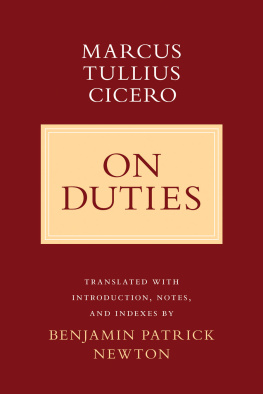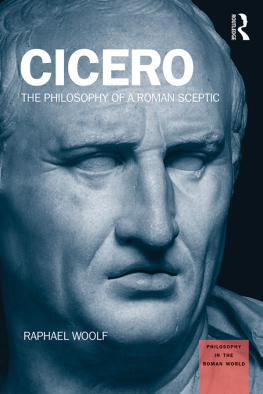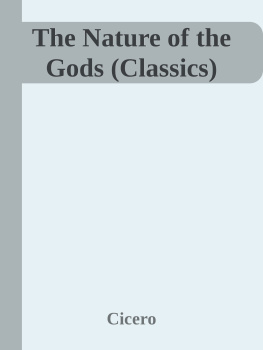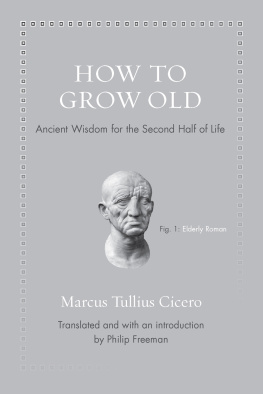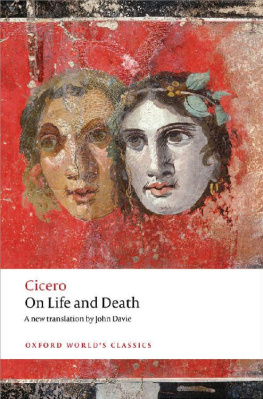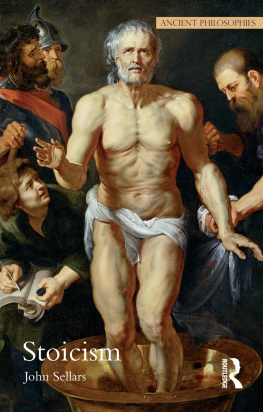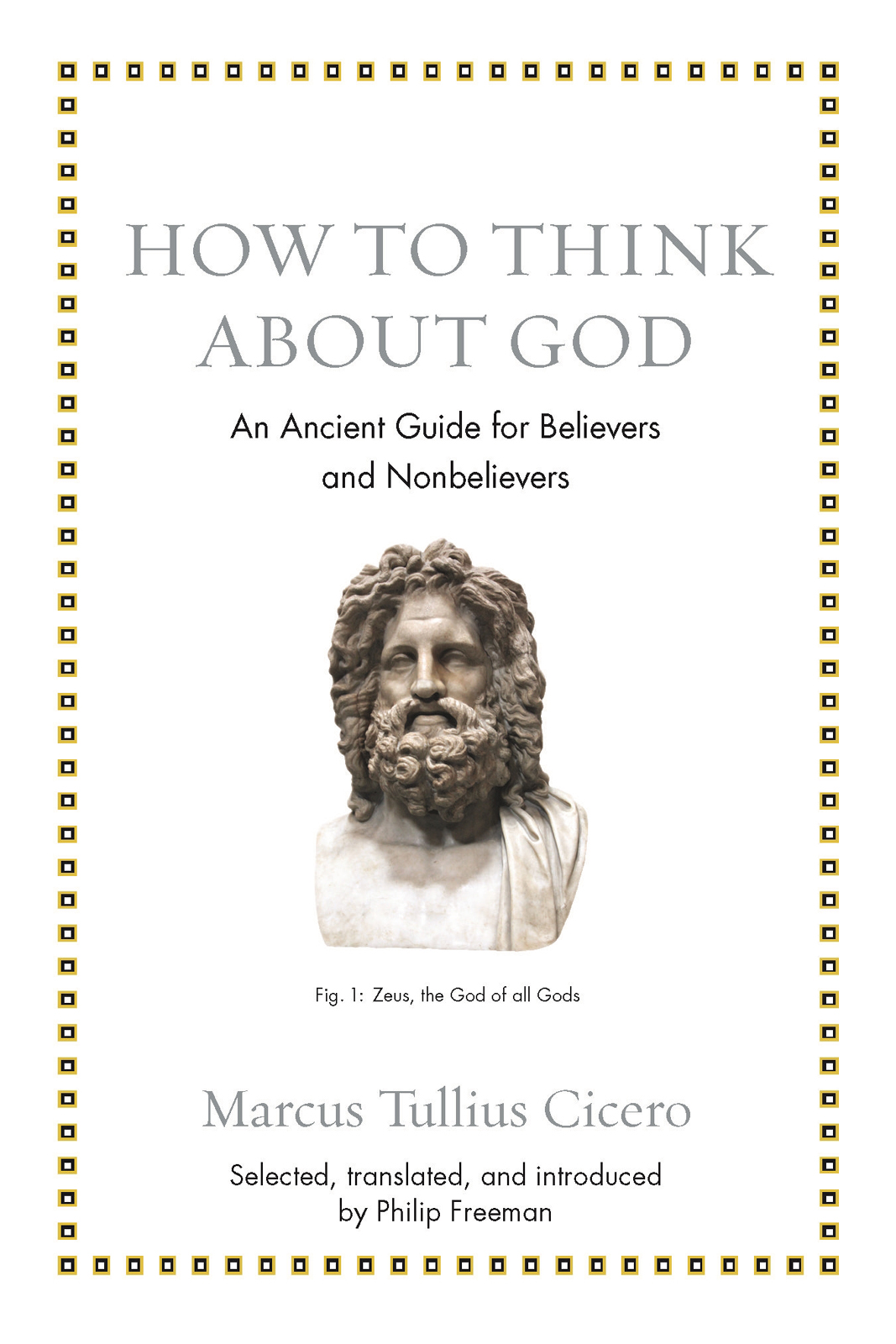
HOW TO THINK ABOUT GOD
ANCIENT WISDOM FOR MODERN READERS
How to Think about God: An Ancient Guide for Believers and Nonbelievers by Marcus Tullius Cicero
How to Keep Your Cool: An Ancient Guide to Anger Management by Seneca
How to Think about War: An Ancient Guide to Foreign Policy by Thucydides
How to Be Free: An Ancient Guide to the Stoic Life by Epictetus
How to Be a Friend: An Ancient Guide to True Friendship by Marcus Tullius Cicero
How to Die: An Ancient Guide to the End of Life by Seneca
How to Win an Argument: An Ancient Guide to the Art of Persuasion by Marcus Tullius Cicero
How to Grow Old: Ancient Wisdom for the Second Half of Life by Marcus Tullius Cicero
How to Run a Country: An Ancient Guide for Modern Leaders by Marcus Tullius Cicero
How to Win an Election: An Ancient Guide for Modern Politicians by Quintus Tullius Cicero
HOW TO THINK
ABOUT GOD
An Ancient Guide for Believers
and Nonbelievers
Marcus Tullius Cicero
Selected, translated, and introduced
by Philip Freeman
PRINCETON UNIVERSITY PRESS
PRINCETON AND OXFORD
Copyright 2019 by Philip Freeman
Requests for permission to reproduce material from this work
should be sent to Permissions, Princeton University Press
Published by Princeton University Press
41 William Street, Princeton, New Jersey 08540
6 Oxford Street, Woodstock, Oxfordshire OX20 1TR
press.princeton.edu
All Rights Reserved
ISBN 978-0-691-18365-7
eISBN 978-0-691-19744-9 (ebook)
Version 1.0
British Library Cataloging-in-Publication Data is available
Editorial: Rob Tempio and Matt Rohal
Production Editorial: Ali Parrington
Text and Jacket Design: Pamela L. Schnitter
Production: Merli Guerra
Publicity: Jodi Price, Amy Stewart, and Alyssa Sanford
Jacket/Cover Credit: Shutterstock
CONTENTS
vii
141
151
INTRODUCTION
Ancient Rome was a land full of gods.
Every Roman family honored the ancestral Lares and guardian Penates who watched over their household, as well as Vesta, the goddess who cared for the sacred hearth fire at the center of every home. Beyond the doorway (secured by Janus, who faced both directions) were countless deities of field, stream, and forest. Unlike the Greek gods, these divine spirits rarely had statues or stories connected with them. They were instead forces of nature that animated every corner of the Roman worldand were ignored at ones own peril. Aside from household and nature gods, there were also state cults devoted to divinities such as Jupiter the lord of the heavens, Mars the god of agriculture (as well as war), and Bona Deathe good goddessworshipped only by women.
But as the Romans expanded across the Mediterranean, they met other gods and many new ideas. Foreign divinities were sometimes welcomed into the Roman pantheon, though often with great suspicion, especially those from the exotic East. Cybele, the Great Mother goddess of Asia Minor, came to Rome during the war against Hannibal. The Jews, despite their peculiar notion of a single God, were allowed to worship freely in the city as long as they paid their taxes and caused no trouble.
From the beginning of Roman history there were undoubtedly atheists and skeptics, but it was the encounter with Greek philosophy that caused many educated Romans to question the religious traditions of their ancestors. Some were intrigued by Pythagoras and his teachings on reincarnation and a mathematical order to the universe. Others were drawn to Plato, a student of Socrates and founder of the Athenian Academy, who taught that there was an invisible world more real than our own and urged a rational quest for the good life. Many, like the Roman poet and philosopher Lucretius, found comfort in the doctrine of Epicurus, who believed the supreme good in life was happiness, with no evidence of divine interest in humanity in a universe made only of atoms. But the most popular brand of Greek philosophy among educated Romans was the Stoicism taught by Zeno and his followers, such as Chrysippus and Posidonius, who believed that virtue was the supreme good in a materialistic and yet divine universe.
Marcus Tullius Cicero was among those Romans in the waning years of the Republic who searched for answers beyond the religion of his forefathers. He loved and honored the traditions of his homeland, but they failed to satisfy a deep longing to know about the role of gods in earthly life, how the universe was organized, and, perhaps most of all, whether the human spirit might survive death.
Cicero had been born in a small Italian town outside of Rome, but by determination and an extraordinary mind had risen in 63 BC to the office of consul, the highest office in the Roman Republic. His skills as an orator were unmatched, as were his talents for compromise and moderation in an age of political extremes. But in spite of his best efforts to maintain the role of the Senate in governing the state, the Republic slipped into dictatorship under Julius Caesar, leaving Cicero on the margins if not outright exile more than once during his political career.
It was during these absences from Rome that Cicero devoted himself to study and writing, producing some of the most important political and philosophical writings of the classical age. As he freely admitted, most of his ideas were Greek, but he was no mere copyist. His ability to adapt the teachings of the greatest Greek minds to a broader world influenced not only his own time but readers for centuries to come, from St. Augustine and Dante to Voltaire and Alexander Hamilton.
In 45 BC, the year before Julius Caesar was assassinated, Cicero wrote a number of important philosophical and rhetorical works including On the Nature of the Gods (De natura deorum), in which several key figures from Roman history stage an imaginary debate on the proper way to think about the divine. In this long and fascinating book, Velleius the Epicurean argues against the idea of the gods having any interest in human affairs. Balbus the Stoic, in contrast, advocates a view of the universe as a living whole controlled by a divine yet still materialistic God who is the ultimate reality (modern readers may see something similar in the Force of the Star Wars saga). Cotta the Academic, representing the later skeptical teachings developed from Plato, casts both views into doubt. The heart of Balbuss Stoic argument is presented in this volume.
A few years earlier, in 51 BC, Cicero had imitated Plato in writing a book on the ideals of government. Called On the Republic (De re publica), most of the text was lost to modern readers until 1820, when a large part of the book was discovered in the Vatican. Only the conclusion of the book, known as the Dream of Scipio, was preserved and studied continuously from antiquity through the Middle Ages and beyond. In this extraordinary dream narrative, given here in its entirety, the Roman hero Scipio is taken on a tour of the heavens by his adoptive grandfather Scipio Africanus. In this nighttime visitation, the younger Scipio discovers the Stoic heavenly design of the universe and the place of a virtuous and eternal soul in it.
Cicero was no religious dogmatist and was indeed a man full of doubts. His own beliefs, reflected in his many treatises and letters, changed repeatedly throughout his troubled life. At most times he seems to have believed hopefully in the God of the Stoicsthough he never identified himself as a Stoicand the possibility of eternal life for the virtuous. At other periods he appears to have doubted almost everything about religion, including the belief that there was any life beyond the grave. His writings translated in this short volume reflect the more hopeful periods of his life and his preference for the Stoic view of the divine. Unlike his justly celebrated works on friendship and growing older,
Next page


